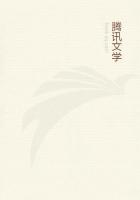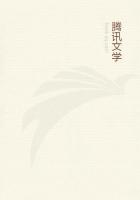But the most striking instance of all, more striking, I think, even than either of these, is the instance of Mr. H. G. Wells.
He began in a sort of insane infancy of pure art. He began by ****** a new heaven and a new earth, with the same irresponsible instinct by which men buy a new necktie or button-hole. He began by trifling with the stars and systems in order to make ephemeral anecdotes;he killed the universe for a joke. He has since become more and more serious, and has become, as men inevitably do when they become more and more serious, more and more parochial. He was frivolous about the twilight of the gods; but he is serious about the London omnibus.
He was careless in "The Time Machine," for that dealt only with the destiny of all things; but be is careful, and even cautious, in "Mankind in the Making," for that deals with the day after to-morrow. He began with the end of the world, and that was easy.
Now he has gone on to the beginning of the world, and that is difficult.
But the main result of all this is the same as in the other cases.
The men who have really been the bold artists, the realistic artists, the uncompromising artists, are the men who have turned out, after all, to be writing "with a purpose." Suppose that any cool and cynical art-critic, any art-critic fully impressed with the conviction that artists were greatest when they were most purely artistic, suppose that a man who professed ably a humane aestheticism, as did Mr. Max Beerbohm, or a cruel aestheticism, as did Mr. W. E. Henley, had cast his eye over the whole fictional literature which was recent in the year 1895, and had been asked to select the three most vigorous and promising and original artists and artistic works, he would, I think, most certainly have said that for a fine artistic audacity, for a real artistic delicacy, or for a whiff of true novelty in art, the things that stood first were "Soldiers Three," by a Mr. Rudyard Kipling; "Arms and the Man,"by a Mr. Bernard Shaw; and "The Time Machine," by a man called Wells.
And all these men have shown themselves ingrainedly didactic.
You may express the matter if you will by saying that if we want doctrines we go to the great artists. But it is clear from the psychology of the matter that this is not the true statement;the true statement is that when we want any art tolerably brisk and bold we have to go to the doctrinaires.
In concluding this book, therefore, I would ask, first and foremost, that men such as these of whom I have spoken should not be insulted by being taken for artists. No man has any right whatever merely to enjoy the work of Mr. Bernard Shaw; he might as well enjoy the invasion of his country by the French. Mr. Shaw writes either to convince or to enrage us. No man has any business to be a Kiplingite without being a politician, and an Imperialist politician.
If a man is first with us, it should be because of what is first with him.
If a man convinces us at all, it should be by his convictions.
If we hate a poem of Kipling's from political passion, we are hating it for the same reason that the poet loved it; if we dislike him because of his opinions, we are disliking him for the best of all possible reasons.
If a man comes into Hyde Park to preach it is permissible to hoot him;but it is discourteous to applaud him as a performing bear.
And an artist is only a performing bear compared with the meanest man who fancies he has anything to say.
There is, indeed, one class of modern writers and thinkers who cannot altogether be overlooked in this question, though there is no space here for a lengthy account of them, which, indeed, to confess the truth, would consist chiefly of abuse. I mean those who get over all these abysses and reconcile all these wars by talking about "aspects of truth," by saying that the art of Kipling represents one aspect of the truth, and the art of William Watson another;the art of Mr. Bernard Shaw one aspect of the truth, and the art of Mr. Cunningham Grahame another; the art of Mr. H. G. Wells one aspect, and the art of Mr. Coventry Patmore (say) another.
I will only say here that this seems to me an evasion which has not even bad the sense to disguise itself ingeniously in words.
If we talk of a certain thing being an aspect of truth, it is evident that we claim to know what is truth; just as, if we talk of the hind leg of a dog, we claim to know what is a dog.
Unfortunately, the philosopher who talks about aspects of truth generally also asks, "What is truth?" Frequently even he denies the existence of truth, or says it is inconceivable by the human intelligence. How, then, can he recognize its aspects?
I should not like to be an artist who brought an architectural sketch to a builder, saying, "This is the south aspect of Sea-View Cottage.
Sea-View Cottage, of course, does not exist." I should not even like very much to have to explain, under such circumstances, that Sea-View Cottage might exist, but was unthinkable by the human mind.
Nor should I like any better to be the bungling and absurd metaphysician who professed to be able to see everywhere the aspects of a truth that is not there. Of course, it is perfectly obvious that there are truths in Kipling, that there are truths in Shaw or Wells.
But the degree to which we can perceive them depends strictly upon how far we have a definite conception inside us of what is truth.
It is ludicrous to suppose that the more sceptical we are the more we see good in everything. It is clear that the more we are certain what good is, the more we shall see good in everything.
I plead, then, that we should agree or disagree with these men. I plead that we should agree with them at least in having an abstract belief.
But I know that there are current in the modern world many vague objections to having an abstract belief, and I feel that we shall not get any further until we have dealt with some of them.
The first objection is easily stated.














